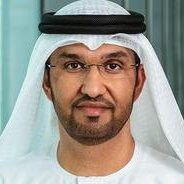UAE aims for AI-driven future
MBZUAI aims to be machine learning hub

Five years ago, perhaps not many people would have thought of Abu Dhabi and the UAE as global leaders in artificial intelligence (AI). That changed in 2017 when the UAE became the first country in the world to create a dedicated AI ministry. Now, Abu Dhabi is taking another important step at placing AI at the core of our future by announcing the world’s first graduate level AI university.
AI has emerged into the mainstream and is quickly becoming embedded in our daily lives. Machines that learn can now be found across the globe and are transforming organisations and the way things are done, covering everything from antivirus software to IT infrastructure management.
This is much more than simply the latest technology hype. The world is facing unprecedented challenges; coping with climate change, managing water shortages, dealing with growing volumes of waste and the need to feed a growing population to name just a few. AI can help tackle these challenges if we deploy it widely and efficiently. However, doing so requires the global community further developing our human expertise of AI.
As we learn, we can teach our machines too. Today, AI is diagnosing medical conditions at scale, in parts of the world that simply do not have enough clinicians to do the job. Machine learning is helping farmers grow more crops, more cheaply and using fewer resources. AI is rapidly becoming the way that knowledge is captured, widely deployed, and that progress is made.
Dr. Sultan Ahmed Al Jaber is the UAE Minister of State and Chairman of the Board of Trustees of the Mohamed bin Zayed University of Artificial Intelligence.
Global AI
Global spending on AI systems is expected to more than double over the next three years, reaching $79.2 billion by 2022. The economic benefit is really significant, with studies predicting a $16 trillion AI-driven uplift to the global economy over the next decade. Here in the UAE, the contribution of artificial intelligence to our country’s GDP is expected to rise to nearly 14 per cent by 2030.
Despite early predictions that AI would reduce employment, experts now estimate that the AI-driven digital transformation could yield millions of new roles that are more adapted to the new division of labor between humans, machines, and algorithms over the next decade.
As we enter this new era, we will need to understand the potential of AI in specific areas and sectors and equip ourselves to deal with the many and varied challenges that transformational change invariably brings. Sound judgement will be required to ensure that AI is deployed ethically and responsibly and in ways that respect societal values.
Sign up to the TechRadar Pro newsletter to get all the top news, opinion, features and guidance your business needs to succeed!
Strategic significance
Many governments recognise this and the overall strategic significance of AI. To date some thirty-five have developed AI strategies. These strategies all recognise the need to develop new skills, at scale, and quickly. In fact, the shortage of skilled talent is widely recognised to be the number one barrier to innovation.
The world needs technical skills to continue to develop the underlying technologies, together with the complex hybrid skills needed for successful AI deployments. The world doesn’t have enough of these skills and they are simply not being developed quickly enough.
That’s why the UAE and Abu Dhabi have announced the establishment of the world’s first graduate-level, research-based AI university – the Mohamed bin Zayed University of Artificial Intelligence (MBZUAI). The University is a powerful open invitation to the world to unleash AI’s full potential.
More than just a unique model of academia, MBZUAI will develop into a global technology hub for leading thinkers from the worlds of policy, business, academia, and civil society. With a board of trustees drawn from global leaders in AI, the University will help prepare the UAE and the global community for an AI-driven future. MBZUAI will equip and empower students, businesses, and governments to advance artificial intelligence as a global force for positive progress.
AI in UAE
The UAE intends to play a leading role in this global transformation. His Highness Sheikh Mohamed bin Zayed Al Nahyan, Crown Prince of Abu Dhabi has a clear vision of the UAE’s future as a fully diversified economy that’s firmly rooted in knowledge and science. AI features strongly in this vision.
In the UAE’s National AI Strategy, our country has committed to deploying AI in strategic sectors of our economy, such as energy, transportation, technology, and education.
We believe that AI can lead us to the greatest societal and economic transformation of our lifetime. That’s why, on behalf of MBZUAI, the UAE and Abu Dhabi, I invite you to join us on the vital, exciting journey ahead.
Dr. Sultan Ahmed Al Jaber is the UAE Minister of State and Chairman of the Board of Trustees of the Mohamed bin Zayed University of Artificial Intelligence.
- Find the best budget phones in UAE here
Dr. Sultan Ahmed Al Jaber is the UAE Minister of State and Chairman of the Board of Trustees of the Mohamed bin Zayed University of Artificial Intelligence. As minister, he is responsible for handling strategic portfolios.
Dr. Sultan Al Jaber is also the Chief Executive Officer of Abu Dhabi National Oil Company (ADNOC), one of the world's leading energy producers, and a primary catalyst for Abu Dhabi’s economic growth and diversification.
Dr. Al Jaber’s career progression spans the energy sector value chain; including the development of oil and gas assets, downstream petrochemicals, power generation, and clean energy. In addition, Dr. Al Jaber has both lead and contributed to shaping international energy policy and legal climate change frameworks under his various past roles. His considerable business and technical expertise and experience have been fundamental to his track record and leadership in delivering large, complex projects that have contributed to the UAE’s drive for strategic growth and economic diversification.
